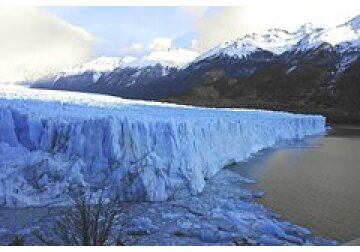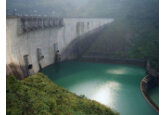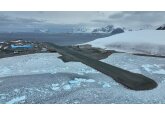
Climate change could affect timekeeping, study says
Climate change is affecting the speed of the Earth's rotation and could impact how we keep time, a study says.
Accelerating melt from Greenland and Antarctica is adding extra water to the world's seas, redistributing mass.
That is very slightly slowing the Earth's rotation. But the planet is still spinning faster than it used to.
The effect is that global timekeepers may need to subtract a second from our clocks later than would otherwise have been the case.
"Global warming is already affecting global timekeeping," says the study, published in the journal Nature.
Coordinated Universal Time (UTC) - which is used by most of the world to regulate clocks and time - is calculated by the Earth's rotation.
But the Earth's rotation rate is not constant and can therefore have an effect on how long our days and nights are.
Changes to the planet's liquid core have meant the Earth has been spinning slightly quicker.
Since the 1970s, to correct for this, about 27 leap seconds have been added to the global clock, with timekeepers planning on subtracting a second for the first time in 2026. This is known as a "negative leap second."
However, the study finds that ice melt caused by climate change has partly offset that acceleration.
Ice sheets are now losing mass five times faster than they were 30 years ago, meaning that the negative leap second change will not be needed until 2029, the study suggests.
"It's kind of impressive, even to me, we've done something that measurably changes how fast the Earth rotates," Duncan Agnew, the author of the study, told NBC News.
"Things are happening that are unprecedented."
The negative leap second has never been used before and, according to the study, its use "will pose an unprecedented problem" for computer systems across the world.
"This has never happened before, and poses a major challenge to making sure that all parts of the global timing infrastructure show the same time," Mr Agnew, who is a researcher at the University of California, San Diego told AFP news agency.
"Many computer programs for leap seconds assume they are all positive, so these would have to be rewritten," he added.
There has been some scepticism of the study, however.
Demetrios Matsakis, former chief scientist for time services at the US Naval Observatory, told AFP that "Earth is too unpredictable to be sure" if a negative leap second would be needed any time soon.
Human activities like burning fossil fuels are causing world temperatures to rise.
That temperature rise is having a huge effect on the environment, including the rapid melting of glaciers and ice sheets.
Bbc.com







